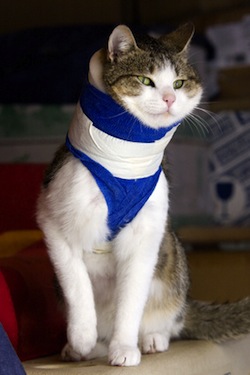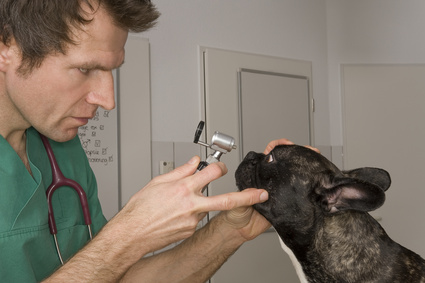Corticoids treatment
 Just as in humans, corticosteroids have very many indications in veterinary medicine. It's molecules essential for the treatment of allergic disorders, inflammatory, immunological…
Just as in humans, corticosteroids have very many indications in veterinary medicine. It's molecules essential for the treatment of allergic disorders, inflammatory, immunological…
If these medicines are of interest in a large number of pathologies, It is because they exert actions very diverse within the Organization. But these effects are not all beneficial for the animal. It is for this reason that a cortisone-based treatment should be administered according to some precautions and only on medical advice.
The many uses of corticoids treatment
Cortisone-based treatments are useful in a very large number of pathologies :
– En Orthopedics When osteo-articular disorders (osteoarthritis pain, herniated disc…)
– En Neurology When inflammatory neurological pathologies, cerebral edema…
– En Endocrinology : Corticosteroids are the treatment of a condition called adrenal insufficiency (animals secrete, natural way, at the level of two small glands located above the kidneys ( the adrenal glands), a well defined quantity of "cortisone". Some diseases are associated with the lack of secretion of this "natural cortisone" and thus require treatment corticosteroid during the lifetime of the animal to overcome this anomaly)
– En cancer to slow the evolution of certain tumors or as palliative treatment for improving end of life of the animals to the maximum.
– En Dermatology in the treatment of many allergic disorders
– En Hematology in some specific kinds of anemia
– En Gastroenterology in chronic inflammatory diseases of the intestine or some types of chronic gastritis
– En Pneumology for the treatment of asthma including
– As emergency treatment following the appearance of a important oedema or a State of shock (After a highway accident, an envenomation, a bite by an insect to which the pet is allergic…)
All these indications lead a very frequent prescription of corticoids treatment. These are however not without side effects and should observe certain precautions during their administration.
The side effects of corticosteroids and their contraindications
The cortisone administration presented some side effects should know:
– It increases appetite the animal's processed,
– It stimulates taking drink and the issuance ofurine.
– When using extended, of digestive disorders may occur (stomach or intestinal ulcers) as well as the eye disorders (cataract, Glaucoma) or even a muscle atrophy.
– Cortisone delays by also the phenomena of healing.
Corticosteroids require some precautions for use
– The doses prescribed should be carefully complied with
– The judgment the treatment must be done in progressive way to limit the risk of onset of secondary disorders (the initial dosage will be gradually reduced by half according to your veterinarian's prescription)
– Administration during the meal reduces the risk of gastric intolerance
– Corticosteroids have not be used at the same time that a another anti-inflammatory (risk more marked digestive ulceration)
– Their use with certain diuretics should be carefully monitored
– Their action decreases the effectiveness of vaccines. Therefore do not vaccinate an animal under corticosteroid treatment.
Finally, certain situations contraindicates the use of corticosteroids:
– Corticosteroids may worsen a Renal or hepatic insufficiency severe. At any old animal, blood stock will therefore have to be carried out before any treatment for the absence of these pathologies.
– They cause an increase in blood glucose and therefore should not be administered to an animal suffering from Diabetes
– As we mentioned previously, the body naturally produces a certain amount of cortisone. Deregulation may occur and result in a far too much production of cortisone by the body. This is Cushing's disease. This disease cannot formally due to his/her administration of corticosteroids. In the same way, an administration of corticoids at high doses may cause symptoms of Cushing's disease (increase in harvest of drink and emission of urine, marked appetite increase, fatigability, muscle wasting, loss of hair, "big belly"…)
– Corticosteroids are not to be used in animals suffering fromgastric or intestinal ulcers
– They are contraindicated in the presence ofcorneal ulcers because they can dig further the ulcer (attention to the use of eye drops containing cortisone without prior medical examination!)
– They decrease the immune system of the animal and must therefore not be used only when serious infections bacterial (pulmonary, skin…)
– Their job must be done with caution in epileptic animals
– Finally, they should not be given to any pregnant females
§
The indications of corticosteroids are extremely varied and their use essential for the treatment of numerous pathologies. Nevertheless, their job is not harmless because they have various side effects and contraindications that should be familiar with before any administration. Your veterinarian can tell you when these molecules can be used without risk or when examinations additional prerequisites are required. Never hesitate to ask Council !
This article is protected by copyright © Vetup


